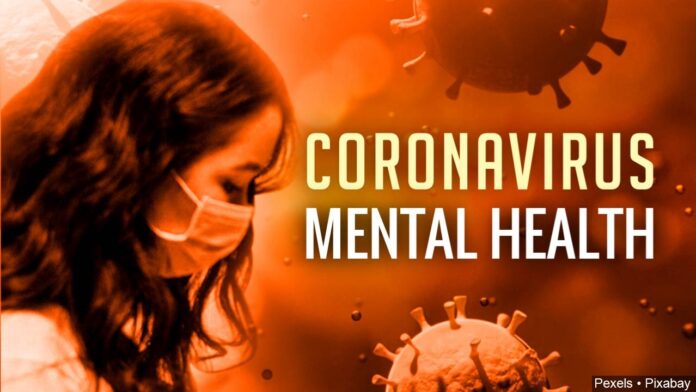Texas may be re-opening its economy this month, but stressors related to COVID-19, shutdowns, job loss, and weeks of isolation have not yet ceased and are likely to resurface as communities begin a transition back to normal.
Access to mental health services is often limited and difficult to navigate even for those fortunate enough to have health insurance, as high co-pays deter patients who can’t pay from seeking treatment. There are resources in the Valley, however, and officials in Brownsville have worked to compile some of those on BTXcares.com.
The site, put together with the support of Brownsville’s City Commission, provides information and links to resources for food assistance, business relief, and coping techniques. The city recommends anyone struggling call the free, 24-hour mental health support line set up by the Texas Department of State Health Services (DSHS) at (833) 986-1919.
City Commissioner Nurith Galonsky hosted two online interview sessions with psychologists to answer questions and give tips to concerned residents feeling challenged by the changes to daily life.
“My background is in working with Child Protective Services, so when this pandemic started and they closed the schools and the lunch programs — that really worried me. I’m familiar with how incidents of child abuse and neglect increase during the summer time when the teachers are not around,” she said.
Galonsky’s guests discussed how to cope with feelings of anxiety and depression, as well as an excess of uncertainty and upsetting news. “Social media is very agitating for people, and I’ll include myself in that. I’ve reduced my social media intake because it can be too much,” she said.
The commissioner reminded residents worried about paying rent, mortgage, utilities, and other bills to stay in tune with the city’s updates for events like emergency food distribution. She suggested that anyone who might suspect child abuse or neglect make a referral to the Texas Department of Family and Protective Services.
Certain Cameron County residents might qualify for the health department’s Mental Health Care Navigation Program, which assists with case management. However, those seeking treatment in Willacy, Hidalgo, and Cameron Counties are referred to Tropical Texas Behavioral Health (TTBH) as the department doesn’t provide mental health services, Cameron County Public Health Administrator Esmer Guajardo confirmed.
Psychiatrists practicing in the Rio Grande Valley say they’ve seen an increase in symptoms of depression and anxiety in patients. Dr. German Corso Mendoza, who practices child and adolescent psychiatry at TTBH, said he’s seen an increase in symptoms, including “issues with mood and sadness that come from being isolated at home, as well as financial issues.”
Asked whether his colleagues worry the state might be lifting restrictions too soon, he said medical professionals are not yet prepared but will continue to try their best to keep patients, themselves, and their families safe. “It is what it is. We are going to continue to adapt and to serve the community in the best way we can.”
The doctor has been recommending that families stay on routine. “Sleep cycles have been turned around. People are going to bed at 3 a.m. and waking up at 1 p.m.,” he said.
Dr. Yasisca Pujols, a forensic clinical psychologist who practices in Brownsville and Houston, said she’s seeing children who aren’t going to bed until the early hours of the morning, sometimes as late 5 a.m.
“Parents don’t know how to manage the behavior because it feels like Saturday night every night now,” she said.
“They’re having to guide their children at home through homework, through attending school or classes while at home. Sometimes they’re dealing with other socioeconomic stressors like their job or unemployment. Then, there’s a pile of people at home nonstop. The dysfunctional family dynamics really start to emerge.”
Pujols said she has also been treating healthcare workers handling anxiety.
”It has been about helping them develop a healthy perspective rather than fearing the unknown, taking control of what they do have control over — how they protect themselves and limit exposure on the job.”
The doctor expects a new surge of anxiety as the community begins to venture outside again.
”Have your go-to social or emotional supports in place. Whether that’s clergy, mental health professionals, family, or friends. That’s something people are finding out — they didn’t have this is place and now are scrambling to find a therapist or someone to talk to.”
Anyone who feels like they can’t cope with current circumstances can call TTBH’s Mental Health and Substance Use Crisis Hotline at (877) 289-7199.





